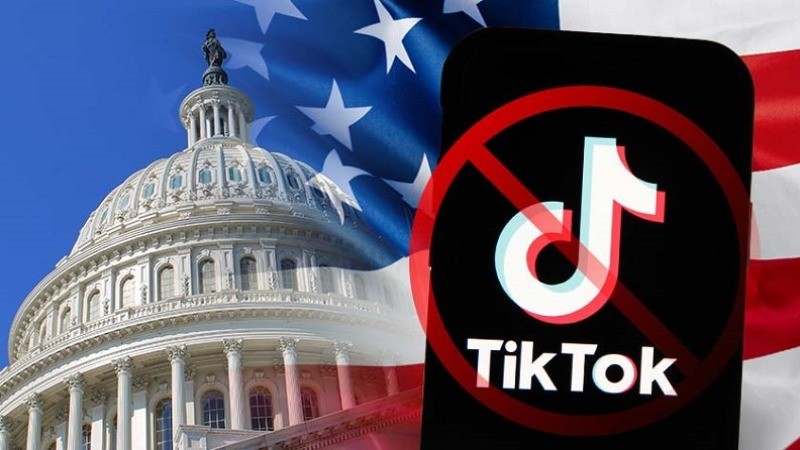
TikTok will try to convince before a federal court on Monday that a law mandating it to divest from its Chinese ownership or face a ban in the United States is unconstitutional.
The controversy over TikTok has become a major political issue, with Republican presidential candidate Donald Trump opposing any ban on the popular app. President Joe Biden, whose vice president Kamala Harris is running against Trump, signed the law that requires TikTok to sever its ties with Chinese ownership by January or be banned from the US market.
TikTok’s parent company, ByteDance, has indicated it has no intention of selling the app, leaving its legal appeal, centered on free speech rights, as its only chance for survival. A potential ban could lead to a strong response from the Chinese government and further strain US-China relations.
A three-judge panel from the US Court of Appeals for the DC Circuit will review arguments from TikTok, ByteDance, and a group of users. They will primarily argue that the law infringes on free speech rights.
The judges are expected to make a decision in the coming weeks or months, but the case is likely to be appealed to the US Supreme Court regardless of the outcome.
TikTok’s appeal argues that the law would force the app to shut down by January 19, 2025, silencing users who rely on the platform for communication that cannot be replicated elsewhere. The company also contends that even if divestiture were possible, the app would lose much of its unique technology and functionality.
TikTok claims that the Constitution supports its position and is pushing for a ruling that would favor the app and its 170 million American users. The US government, however, maintains that the law addresses national security concerns rather than free speech, and that ByteDance cannot claim First Amendment protections in the US.
The Justice Department argues that TikTok’s widespread use in the US presents a national security threat, as it could potentially be exploited by China to undermine American interests. They claim ByteDance could comply with Chinese demands for data or face pressure to censor or promote content.
TikTok first faced scrutiny under former President Trump, who attempted to ban the app but was blocked by a federal judge due to potential infringements on free speech rights. Trump has since changed his stance, urging supporters to vote for him to save TikTok in America.
In a sign of the app's popularity, Biden’s reelection campaign created a TikTok account earlier this year. Although Biden has stepped back from his reelection bid, Harris, who continues to run in his place, maintains a presence on TikTok, utilizing social media to connect with younger voters.
The new law, signed by Biden, aims to address previous legal challenges but faces potential difficulties in balancing national security and free speech protections, according to legal experts. Much of the US government's national security arguments are sealed, complicating the assessment of their validity.